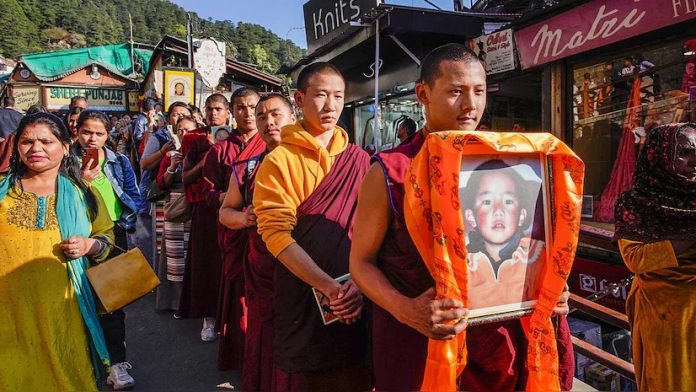Tibetans and their supporters took the stage at a United Nations Human Rights Council side event in Geneva, bringing attention to China’s suppression of the Tibetan language and recent school closures in Tibet.
The event, hosted by the Helsinki Foundation for Human Rights, was moderated by Kai Mueller from the International Campaign for Tibet (ICT).
The panel featured prominent speakers including Palmo Tenzin, a senior researcher at ICT, Tenzin Choekyi from Tibet Watch, and Gloria Montgomery from the Tibet Justice Center. The discussion was well-attended by representatives from various UN missions, highlighting the growing concern over the situation in Tibet.
Tenzin Choekyi opened the event by outlining the history of Tibetan protests advocating for language rights and the severe consequences faced by those who speak out against the Chinese government. She noted that community leaders, intellectuals, and ordinary Tibetans risk detention, torture, or imprisonment for their advocacy.
During the event, Palmo Tenzin emphasised the oppressive environment that stifles open dialogue about these issues within Tibet and discussed recent educational policies detrimental to the Tibetan language and culture.
She said, “Tibetan children lose their mother tongue, are unable to communicate with relatives, and cannot access their culture and history.”
Gloria Montgomery warned about the implications of China’s closures of Tibetan schools, reminding attendees of the Chinese government’s obligations under international law to provide education in the Tibetan language, as established by various international covenants ratified by the People’s Republic of China.
In a significant move, China chose to attend the panel and respond to the testimonies rather than delegating the task to proxy organisations. However, their representatives denied the validity of the accounts presented, reflecting Beijing’s longstanding dismissal of the situation in Tibet and a reluctance to engage with the testimonies provided by Tibetan advocates.
Tencho Gyatso, President of the International Campaign for Tibet, praised the advocates for clearly illustrating the harsh realities of Chinese governance in Tibet. He stated, “Instead of lying to the world, China must acknowledge that Tibetans have every right to be educated in their mother tongue and stop trying to forcibly erase Tibet’s rich heritage.”
The event’s significance was underscored by a recent appeal from 100 Tibetan and Himalayan scholars to the UN High Commissioner for Human Rights Volker Turk. In their petition, the scholars expressed deep concern over China’s systematic closure of Tibetan monastic and public schools and called for an end to forced assimilation policies in Tibet.
This gathering at the UN serves as a critical moment for Tibetan advocates, who continue to call for recognition of their rights and the protection of their language and culture amid increasing repression.









































